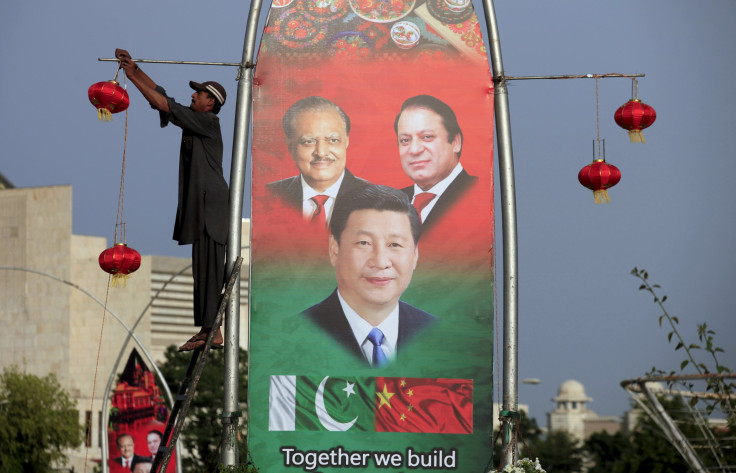China’s President Xi Jinping Expected To Announce $46B Infrastructure Aid To Pakistan

China’s President Xi Jinping is due to make a rare visit to Pakistan on Monday, where he is expected to announce $46 billion of investment to aid the country’s struggling infrastructure and energy sector. If the speculated amount turns out to be accurate, it will outweigh the assistance the United States has ever offered to Pakistan over a decade of close relationship.
During his Pakistan visit -- the first by a Chinese president in nearly a decade -- Xi is likely to unveil spending plans on building a China-Pakistan Economic Corridor (CPEC), connecting Gwadar in Pakistan's Balochistan province and China's western Xinjiang region. Much of the $46 billion investment is likely to be devoted to a network of roads, rails and pipelines that would be built on a commercial basis by Chinese companies over a period of 15 years, the New York Times reported.
“China and Pakistan need to align security concerns more closely to strengthen security co-operation,” Xi said in a statement, obtained by the BBC, on Sunday. “Our co-operation in the security and economic fields reinforce each other, and they must be advanced simultaneously.”
During his two-day visit, the Chinese leader is expected to sign deals worth nearly $28 billion, with the rest to follow later. Nearly $15.5 billion worth of coal, wind, solar and hydro energy projects are set to take off by 2017, adding 16,400 megawatts of energy to Pakistan's national grid. A $44 million fiber cable is also due to be constructed between the two countries in coming years, the BBC reported, citing Pakistani officials.
“These are very substantial and tangible projects which will have a significant transformative effect on Pakistan’s economy,” Ahsan Iqbal, Pakistan’s federal minister for planning and development, told the Agence France-Presse.
China hopes that the CPEC project will give Beijing direct access to the Arabian Sea and beyond, allowing it to expand its footprints and increase economic influence in central and south Asia. The route from Gwadar to Xinjiang is also expected to speed up the shipment of goods from Europe and China as it would avoid the Strait of Malacca farther east, which connects the Pacific Ocean to the east with the Indian Ocean to the west.
“The Chinese are stepping in, in a much, much bigger way than the United States ever contemplated,” Jahangir Tareen, secretary general of the Pakistan Tehreek-e-Insaf party, told the Times. “The assistance is far, far more than the United States government offered under the United States Agency for International Development.”
© Copyright IBTimes 2024. All rights reserved.






















